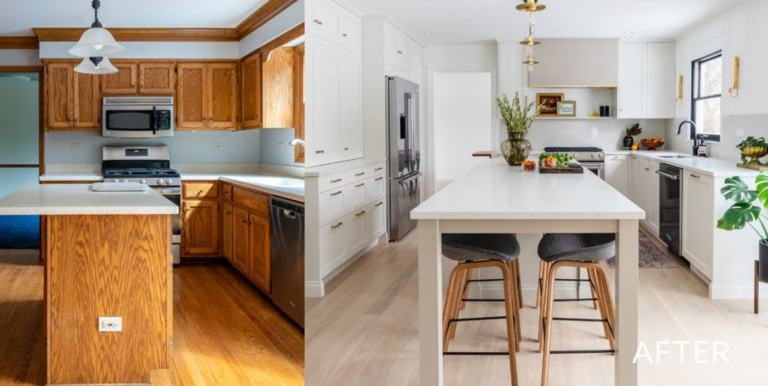In today’s ever-evolving real estate landscape, the decision between renting and owning a home is a pivotal one. Both options carry their own set of advantages and considerations, impacting not only your financial future but also your lifestyle and long-term goals. This comprehensive guide will delve into the intricacies of renting vs owning a home, equipping you with the knowledge needed to make an informed choice that aligns with your circumstances and aspirations.
The Pros and Cons of Owning
Advantages of Owning
Building Equity
Owning a home offers a significant advantage in terms of building equity. Equity refers to the difference between the property’s market value and the amount still owed on the mortgage. With each mortgage payment, a portion goes toward paying down the loan balance, effectively increasing your ownership stake in the property. This equity accumulation can be considered a form of forced savings, as you are building wealth over time by investing in an appreciating asset. Real estate historically appreciates in value, meaning that over the long term, your property could potentially increase in value, giving you the opportunity for substantial financial gain when you decide to sell.
Stability and Control
Homeownership provides a sense of stability and control that renting may not offer. When you own a home, you have the freedom to personalize and modify the space to suit your preferences and needs. Whether it’s renovating the kitchen, landscaping the backyard, or repainting the walls, you have the ability to make the property truly your own. This level of customization allows you to create a living environment that aligns with your personal style and enhances your quality of life. Additionally, homeownership shields you from the uncertainty of rent increases and lease changes that renters often face, providing a sense of security in your living situation.
Tax Benefits
Homeowners often enjoy tax benefits that are not available to renters. Mortgage interest payments and property tax payments are often tax-deductible, which can lead to significant savings come tax season. The ability to deduct mortgage interest from your taxable income can lower your overall tax liability, effectively reducing the cost of homeownership. These savings can accumulate over time and contribute to your financial well-being, providing additional financial flexibility for other investments or expenses.
In summary, the advantages of homeownership include the opportunity to build equity, the stability and control over your living environment, and potential tax benefits. These factors contribute to the long-term financial benefits and sense of ownership that come with owning a home. However, it’s important to also consider the responsibilities and potential downsides of homeownership, such as maintenance costs, property taxes, and the commitment to a specific location.
Considerations of Owning
Financial Commitment
Owning a home entails a significant financial commitment, starting with the down payment and continuing with mortgage payments, property taxes, insurance, and maintenance costs. It’s important to assess your financial stability and long-term goals before taking on these obligations.
Reduced Flexibility
Homeownership comes with a reduced level of flexibility compared to renting. Selling a home can be a complex and time-consuming process, limiting your ability to relocate quickly. If you foresee the need for frequent relocations, owning a home might not align with your lifestyle.
The Pros and Cons of Renting
 Advantages of Renting
Advantages of Renting
Flexibility and Mobility
Renting provides unparalleled flexibility, making it an attractive choice for those who value mobility. Leases typically span a year, allowing you to relocate more easily for work or personal reasons. You aren’t tied down to a particular property, granting you the freedom to explore different neighborhoods and living arrangements.
Minimal Financial Commitment
Renting often requires a lower upfront financial commitment compared to homeownership. While you may need to pay a security deposit and the first month’s rent, these costs are generally more affordable than the substantial down payment and closing costs associated with buying a home.
Limited Maintenance Responsibilities
One of the primary advantages of renting is the reduced maintenance responsibility. Landlords or property management companies are responsible for addressing maintenance and repair issues. This relieves you of the financial burden and time-consuming tasks that homeownership demands.
Considerations of Renting
Lack of Equity
A notable drawback of renting is the absence of equity accumulation. Equity refers to the ownership value that a homeowner builds in their property over time as they make mortgage payments. With each payment, a portion goes toward reducing the loan balance, which in turn increases the homeowner’s stake in the property. This ownership stake can be leveraged for future financial endeavors, such as selling the property at a profit, borrowing against the equity for major expenses, or even using it as a source of retirement income.
Renters, on the other hand, do not have the opportunity to build equity in the property they are living in. Rent payments contribute solely to the landlord’s income and property maintenance costs. This lack of ownership means that renting does not contribute to long-term wealth creation or the potential financial benefits that homeownership offers.
Rent Fluctuations
Rent prices are subject to change at the end of each lease term, and this can lead to uncertainty for renters. Unlike homeowners who often have stable mortgage payments (assuming a fixed-rate mortgage), renters may experience fluctuations in their monthly rent due to changes in market conditions. These fluctuations can be influenced by various factors, including supply and demand dynamics, inflation, and changes in the local rental market.
Such rent fluctuations can pose challenges to renters’ financial planning. An unexpected increase in rent could strain their monthly budget and impact their ability to save or meet other financial goals. Renters might find themselves having to adjust their living situation or make sacrifices in other areas to accommodate these changes in their housing costs.
In summary, considerations of renting include the lack of equity accumulation and the potential for rent fluctuations. These factors can impact renters’ ability to build long-term wealth and stability compared to homeownership. Before deciding to rent, individuals should carefully weigh these drawbacks against the advantages of renting to determine what aligns best with their financial goals and lifestyle preferences.
Making the Right Choice for You
The decision between renting vs owning a home is a significant one that should be tailored to your unique circumstances, aspirations, and preferences. Taking the time to assess various factors can help you make an informed choice that aligns with your financial goals and lifestyle. Consider the following steps as you weigh the pros and cons of each option:
Financial Assessment
Start by conducting a thorough evaluation of your current financial situation. Calculate your income, savings, and outstanding debt. This assessment will give you a clear understanding of how much you can comfortably allocate toward housing expenses. Taking into account your financial capacity will help you avoid overextending yourself and ensure that your housing choice is sustainable over the long term.
Long-Term Goals
Reflect on your long-term goals and aspirations. Are you looking to establish roots in a particular community and build wealth over time? Alternatively, do you foresee the need for frequent relocations due to your career or personal circumstances? Your future plans can greatly influence whether renting or owning aligns better with your lifestyle and objectives.
Market Research
Engage in thorough market research, particularly if you have a specific location in mind. Compare rental rates to mortgage payments and property prices in the area. This research will give you insights into the financial implications of each choice. Understanding how the local real estate market operates can empower you to make a decision that optimally suits your budget and goals.
Lifestyle Considerations
Consider your lifestyle preferences and priorities. If stability, customization, and the ability to make a property your own are important to you, homeownership might be more appealing. On the other hand, if flexibility and the option to easily move to different areas are significant, renting might be a better fit. Assessing what matters most to you in terms of your living environment and long-term plans can guide your decision-making process.
Consult Professionals
Engage with professionals who can provide expert guidance. Financial advisors can help you understand the financial implications of each option and determine what aligns with your overall financial strategy. Real estate agents can offer insights into the local market and guide you through the homebuying process. If you’re considering homeownership, experts like the Roller Mortgage Team can assist you in understanding your mortgage options, navigating the application process, and finding the best financing solution for your needs.
Ultimately, the decision to rent or own a home is a multifaceted one. By carefully evaluating your financial situation, long-term goals, market conditions, lifestyle preferences, and seeking advice from knowledgeable professionals, you can make a choice that sets you on a path toward housing that complements your life and financial aspirations.
The LeaderOne Lowdown on Renting vs Owning a Home
The decision to rent or own a home is a multifaceted one with long-term implications. By weighing the advantages and considerations of both choices, you can make an informed decision that aligns with your financial goals and lifestyle preferences. Whether you prioritize the flexibility of renting or the stability of homeownership, taking into account factors such as equity accumulation, maintenance responsibilities, and market fluctuations will guide you towards the right choice for your unique circumstances. Ultimately, this decision shapes your living environment and financial future. If you’re seeking expert advice, professionals like the LeaderOne Mortgage Team can offer valuable insights to help you navigate this significant crossroads. Remember, making an informed decision today ensures you’re on a path to secure housing that harmonizes with your individual journey.





